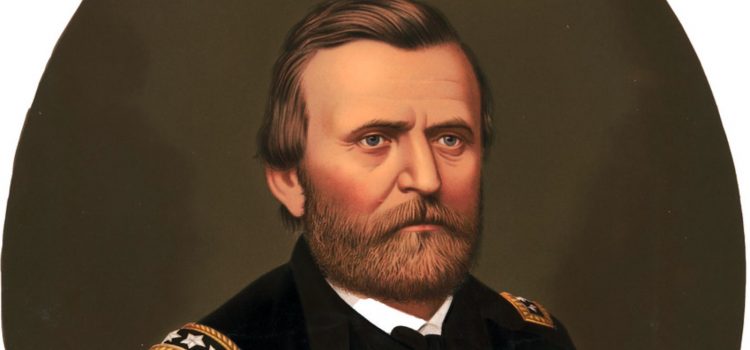
What were the worst of Ulysses S. Grant’s scandals? Why was Grant susceptible to corruption?
Although Grant showed political poise in other areas, Grant by Ron Chernow contends that his lack of political experience was evident elsewhere. In particular, he argues that Grant’s gullible nature blinded him to corruption by those he trusted, revealing a consistent political naivety.
To show as much, we’ll focus on two scandals that marred Grant’s presidency: the so-called Whiskey Ring and Indian Ring scandals.
Scandal #1: The Whiskey Ring
One of the worst Ulysses S. Grant scandals was the Whiskey Ring scandal. Discovered in 1875, concerned two of Grant’s close friends: General John McDonald, whom Grant nominated as head of internal revenue for Arkansas and Missouri, and Orville Babcock, Grant’s personal aide. For several years, McDonald had colluded with whiskey distillers in St. Louis, helping them duck taxes and pocketing half the difference himself. And as Grant’s aide, Babcock supported McDonald both by steering attention away from the ring, and by later providing McDonald a heads-up before federal agents raided the distilleries.
(Shortform note: The Whiskey Ring was a precursor to the slew of scandals that would afflict the US Internal Revenue Service (IRS) over the next century. For example, in the 1940s hundreds of IRS staffers were fired or even indicted for accepting bribes, and during the Kennedy Administration of the ‘60s, the IRS was notorious for conducting politically motivated audits of conservative groups that Kennedy opposed.)
However, although Secretary of the Treasury Benjamin Bristow showed Grant damning evidence against McDonald and Babcock, Grant refused to believe his friends had betrayed him. As Chernow relates, Grant even gave a deposition in 1876—an act unprecedented for a sitting President—to testify to Babcock’s honesty and to express his unwavering belief in Babcock’s innocence. According to Chernow, this deposition was crucial in Babcock’s acquittal, even though telegrams had been seized effectively proving Babcock had colluded with McDonald. So though Grant didn’t participate in the scandal himself, his naivety led to the acquittal of one of its key members.
(Shortform note: In addition to testifying on Babcock’s behalf, Grant also remained convinced that McDonald—who was later convicted and imprisoned for his role in the scandal—was innocent of the charges. In fact, on Grant’s last day in office in 1877, he chose to unconditionally pardon McDonald, even though McDonald had (unbeknownst to Grant) tried to implicate Grant himself in the scandal.)
Scandal #2: The Indian Ring
In the wake of the whiskey ring, Grant’s presidency fell victim to another scandal, known as the Indian Ring, that again showcased Grant’s vulnerability to corruption. Chernow writes that, in March 1876, a House committee collected evidence that Grant’s Secretary of War, William Belknap, had committed an impeachable offense by taking bribes to appoint individuals to valuable Indian traderships (trading posts whose owners had the right to sell goods to Native Americans) to the tune of $6,000 a year.
(Shortform note: As Secretary of War, Belknap set the stage for the Indian Ring scandal in 1870, when he successfully lobbied Congress to vest in him the sole authority to appoint Indian traderships. Before 1870, US army officers were given authority to open these traderships of their own accord, without being appointed by the Secretary of War.)
Grant’s short-sightedness was evident on March 2, when Belknap (who had caught wind of the looming impeachment hearing against him) approached him and asked to resign. According to Chernow, though Grant knew of the investigation against Belknap, he carelessly accepted his resignation, making him a private citizen and throwing into question whether it was legal to impeach him. Grant thus unwittingly shielded Belknap, and although the Senate attempted to convict Belknap, the vote failed because many Senators believed they couldn’t convict a private citizen.
(Shortform note: Although the Senate failed to convict Belknap, the House of Representatives unanimously voted to impeach Belknap beforehand, making him the only Cabinet Secretary in history to be impeached. However, there have been several unsuccessful attempts to impeach Cabinet officials, such as Attorney General Harry Daugherty in 1922 and Attorney General Alberto Gonzales in 2007.)

———End of Preview———
Like what you just read? Read the rest of the world's best book summary and analysis of Ron Chernow's "Grant" at Shortform.
Here's what you'll find in our full Grant summary:
- A biography of Ulysses S. Grant that paints him in a new light
- Grant's role in the Civil War and as president of the United States
- How Grant fought valiantly against alcohol addiction






